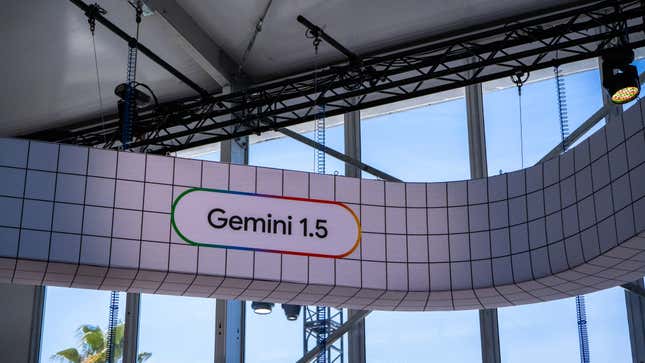Google’s annual developer convention has come and gone, however I nonetheless do not know what was introduced.
I imply, I do. I do know it Twins was a giant a part of the present—the spotlight of the week—and that the plan is to roll it out throughout each a part of Google’s product portfolio, from the cell working system to desktop net apps. However then that was all.
On look of Android 15 and what it is going to carry to the working system. We did not obtain details about the second beta till second day of the convention. Google often does this straight away in direction of the top of the primary day’s keynote – or not less than that is what I anticipated, on condition that it was established order at the previous few developer conferences.
I do not one V this sense. Others share my sentiments, beginning with blogs To boards. It was a difficult 12 months to transition to Google I/O as a person of current merchandise. It was like a kind of timeshare gross sales pitches the place the corporate sells you an concept after which reassures you with enjoyable and free stuff so you do not take into consideration how a lot you are investing in a property that you just solely have entry to some. yearly. However in all places I went, I stored fascinated about Gemini and the way they might influence the present person expertise. The keynote did little to persuade me that this was the long run I wished.
Belief Gemini Synthetic Intelligence

I consider Google’s Gemini is able to many unbelievable issues. Firstly, I actively use Circle to go looking, so I understood. I might see the way it might assist get work completed, summarize notes, and get data with out requiring me to scroll by way of screens. I even tried Mission Astra and sensed the potential of how this broad-language mannequin might see the world round it and hone in on the small nuances current in an individual’s face. This can actually be helpful when it comes out and is absolutely built-in into the working system.
Or that? I used to be struggling to grasp why I wished to create an AI narrative for enjoyable, which was one of many choices to showcase Mission Astra. Whereas it is nice that Gemini can supply contextual responses to bodily points of your environment, the demo could not clarify precisely when such an interplay would occur on an Android gadget.
We all know the Who, The place, What, Why and How behind the existence of Gemini, however we do not know When. When can we use Gemini? When will the expertise be prepared to switch the remnants of the present Google Assistant? The keynote and demos at Google I/O did not reply these two questions.
Google has supplied many examples of how builders will profit from the long run. For instance, Mission Astra can evaluation your code and assist you enhance it. However I don’t program, so I didn’t instantly like this use case. Google then confirmed us how Gemini would have the ability to bear in mind the place objects had been final positioned. It is actually cool, and I might see how it might profit common people who find themselves coping with, say, being overwhelmed by the whole lot that is required of them. However there was not a phrase about this. What good is contextual AI if its use shouldn’t be proven in context?
I have been to 10 Google I/O developer conferences, and that is the primary 12 months that I left scratching my head as a substitute of wanting ahead to future software program updates. I am bored with Google pushing the Gemini story onto its customers with out detailing how we’ll should adapt to remain in its ecosystem.
Maybe the reason being that Google would not wish to scare anybody away. However for the person, silence is worse than anything.
